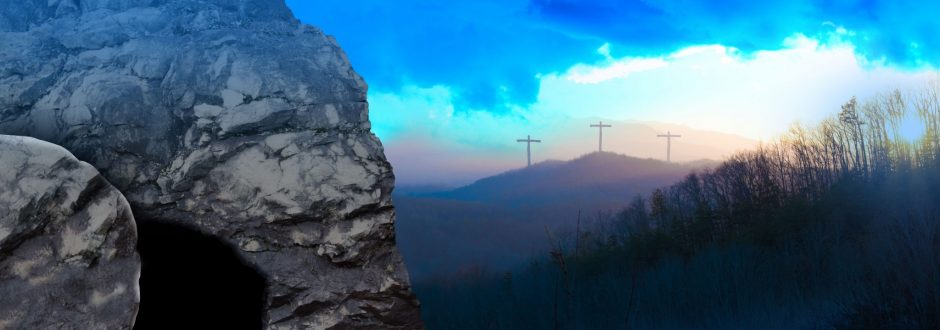Like the women at the empty tomb we, too, go in faith. We wait to see the risen one in the midst of this global pandemic, writes Catherine McCahill SGS.
On the first day of the week, Mary Magdalene and the other women came to the tomb of Jesus, and the young man said to them, “Do not be afraid … Jesus of Nazareth … has been raised … Look there is the place they laid him …” (Mark 16:6)
At first glance, this seems such an ambiguous, unusual demand. They are told to look at the empty “place”, the dark tomb, the place where they had seen the battered, crucified, dead body of Jesus laid just three days earlier. There is nothing to see, no sign of what has happened, nothing to salve the pain and grief of their troubled hearts and minds, apart from this unknown young man.
According to the Australian biblical scholar, Michael Trainor, “This is the place of absence, foreignness and otherness which must be ‘seen’ through silent contemplation. Denial, withdrawal without attention, or an avoidance of recognising what has happened will not enable the community of disciples in whatever moment of history to proclaim the resurrection.”
So what do we see, in this, our moment in history, a moment like none other?
A world in the grip of a pandemic: COVID-19 confronts us on every continent, among all peoples. The statistics are frightening; the contagion is rapid; and the deaths are multiplying. Health systems are crippled by the demands, and economies are set to topple. We are horrified, scared, exhausted, isolated and powerless.
The young man at the empty tomb continues speaking to the women, “Go tell his disciples he is going ahead of you to Galilee; there you will see him” (Mark 16:7). In their fear and distress, they set out. They set out because they have enough courage – courage marked by exposure to the darkness of the empty tomb – to believe that Jesus still goes ahead and will meet them on the way.
It takes courage to live this radical discipleship, to follow the way of the crucified, waiting in darkness for light, for glimpses of our loving God.
The women go together. They go in faith, faith forged by the journey so far.
We, too, go in faith. We wait to see the risen one in the midst of this pandemic.
Our churches are empty, our liturgies home-based. Our communities are unable to gather; two is the new crowd limit. And yet, we are courageous enough to proclaim, “The Lord is truly risen … and we have seen him”.
Yes, we have seen him. We have seen him these weeks in so many places: on the faces of children sending messages to absent grandparents, on the anguished faces of frontline health workers deficit of sufficient resources and burying their colleagues, in the unending queues for social security or food, in the determination of teachers to provide quality education for all including those deprived of internet access, in kind neighbours who deliver food and messages to those who are isolated.
Brisbane’s Archbishop Mark Coleridge expounds on this in his Easter homily: “God is always in the darkness. That is where Easter begins. There is a blessing even in this strangest of Easters. In the midst of this crisis, there is a blessing. Easter not only promises the blessing to us, but it calls us to discover that blessing. So this Easter is like no other in many, many ways but in the deepest way this Easter is the same as every Easter before and every Easter to come, summoning us to touch God in the darkness and allow God to turn our darkness, the darkness of this crisis, into the light that never ends.”
So we, Christians, are being “called” to discover the blessing of the risen Christ. As in every other moment of history, we will touch God in the darkness, in our solitude and as community.
As we have moved to this new mode of living, “staying at home”, I have been moved and challenged by so many who have come to appreciate the space, the solitude, the time apart. In some cases, it is simply time gained from not travelling to work, while for others it is appreciation for music, for family, for cooking, and even for cleaning. Some others among us are struggling with the isolation, new waves of mental health issues and family violence. Yet we are called to seek God in the darkness.
Perhaps, the greatest blessing for the human community of this crisis is the deepening sense of community. We are all in this together: person by person, family by family, nation by nation. We depend on each other. We need each other to maintain good hygiene, to “stay home”, to provide health services, to provide food and essential services, to teach our children. We need each other to maintain social connection in a time of unprecedented physical separation.
As we set out on our road to Galilee, we are invited to notice the risen Jesus. We know the darkness and we have seen glimmers of the resurrection.
Here we sing Alleluia in hope, as pilgrims on the way.
Let us sing then, as travellers sing along the road.
Sing with one another.
Sing loudly
Lift your spirits by singing together.
Sing up – but keep on walking. (St Augustine)
